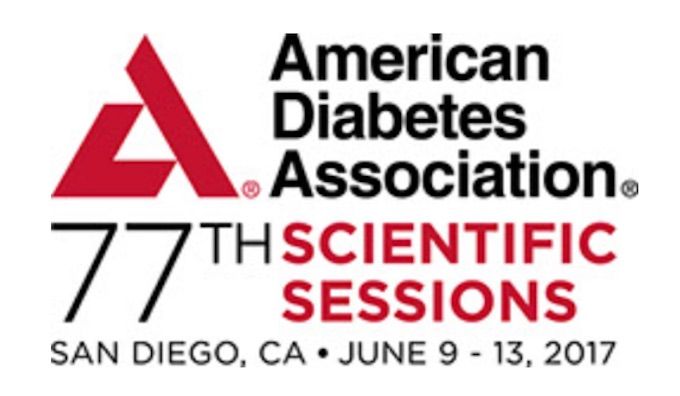Article
ODYSSEY DM-INSULIN Results Presented at ADA 77th Scientific Sessions
Author(s):
ODYSSEY DM-INSULIN is 1 of 2 studies on alirocumab presented at ADA Scientific Sessions.

The eagerly anticipated results of 2 ODYSSEY trials were presented this morning at the ADA 77th Scientific Sessions in San Diego.
According to both studies, alirocumab (Praluent/Sanofi, Regeneron), a proprotein convertase subtilisin/kexin type 9 (PCSK9) inhibitor, reduces low-density lipoprotein cholesterol (LDL-C) levels and non-high-density lipoprotein cholesterol (non-HDL-C) in patients with type 2 diabetes (T2D).
Patients with T2D are more prone to abnormal cholesterol levels, which can cause an increased risk for cardiovascular disease (CVD). PCSK9 is a protein known to reduce the activity of the liver receptors that bind and break down cholesterol in the blood. As a PCSK9 inhibitor, alirocumab is an US Food & Drug Administration (FDA)-approved monoclonal antibody that prevents the PCSK9 protein from inhibiting these liver receptors, allowing it to break down more cholesterol and lowering cholesterol levels.
“People with diabetes are at high cardiovascular risk, and dyslipidemia is a major risk factor for macrovascular complications,” Lawrence Leiter, MD, associate scientist at Li Ka Shing Knowledge Institute at St. Michael’s Hospital in Toronto, and professor in the departments of medicine and nutritional sciences at the University of Toronto, said in a news release announcing the results presented at the ADA meeting.
During the “Inhibition of PCSK9 in Dyslipidemia Patients with Diabetes” symposium, attendees heard the study design and insights of the large-scale ODYSSEY program, which comprised numerous trials investigating the medication’s efficacy.
ODYSSEY DM-INSULIN, an international Phase 3, randomized, double-blind, placebo-controlled, study, was conducted at 108 centers in the United States and Europe. A total of 517 patients with type 1 diabetes (T1D) and T2D, a high cardiovascular risk, and hypercholesterolemia were enrolled. These patients were being treated with insulin, and their hypercholesterolemia was not adequately controlled by maximally tolerated doses (MDT) of statin therapy.
The results presented at the ADA meeting were for the 441 patients in the study population with T2D; results on efficacy and safety in patients with T1D will be reported at a later date.
The patients with T2D were randomly assigned to receive either an injection of 75 mg of alirocumab (n = 294) or placebo (n = 147) by injection once every 2 weeks. The patients in the alirocumab group who had an LDL-C level of ≥70 mg/dL at 8 weeks received a blinded dose increase to 150 mg at week 12.
The primary endpoint of ODYSSEY DM-INSULIN was the percentage change in LDL-C from baseline to week 24. The results showed that this endpoint was met, with patients taking alirocumab combined with MTD statins exhibiting a 48.2% reduction in LDL-C from baseline compared with a 0.8% increase in patients in the placebo group. The mean difference between the two treatment arms was 49% (P < .0001).
Further, 80% of the patients reached recommended target LDL-C levels with the 75-mg dose of alirocumab, and it improved the overall lipid profile with no impact on glycemic control as assessed by fasting plasma glucose and hemoglobin A1C.
Glucose-lowering treatments remained stable over time in both treatment groups, and there were no emerging safety findings. The most frequent adverse events (AEs) were nasopharyngitis, myalgia, arthralgia, and cough.
According to the partner companies, while this was the first dedicated trial of a PCSK9 inhibitor in patients with T2D, the results are comparable to what was previously seen in the ODYSSEY program. Results from the ODYSSEY LONG TERM study, in which all patients were treated with alirocumab 150 mg and MTD statins, alirocumab reduced LDL-C by 60% from baseline in 545 patients with diabetes at week 24.
“Despite the current standard of care for lipid lowering therapy, many individuals with diabetes have persistent lipid abnormalities resulting in increased residual cardiovascular risk,” Leiter explained. “For people with diabetes, cardiovascular risk increases with advanced duration of diabetes, particularly in insulin-treated patients. The results of the ODYSSEY DM-INSULIN study provide valuable information on the efficacy and safety of alirocumab in this high cardiovascular risk group and will help guide clinical decision-making beyond statin therapy.”





